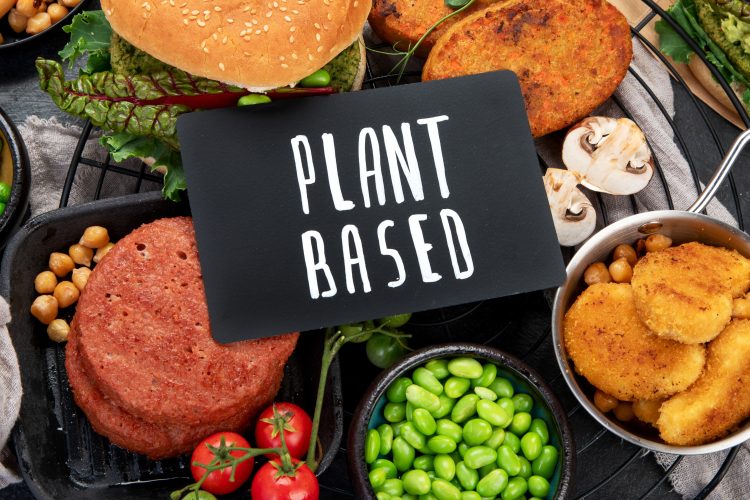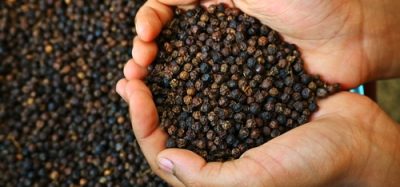Is the plant-based bubble bursting?
- Like
- Digg
- Del
- Tumblr
- VKontakte
- Buffer
- Love This
- Odnoklassniki
- Meneame
- Blogger
- Amazon
- Yahoo Mail
- Gmail
- AOL
- Newsvine
- HackerNews
- Evernote
- MySpace
- Mail.ru
- Viadeo
- Line
- Comments
- Yummly
- SMS
- Viber
- Telegram
- Subscribe
- Skype
- Facebook Messenger
- Kakao
- LiveJournal
- Yammer
- Edgar
- Fintel
- Mix
- Instapaper
- Copy Link
Posted: 29 January 2024 | Sam Sharp | No comments yet
Despite a previous surge in plant-based demand, Sam Sharp explores hurdles in the sector, including market saturation, cost concerns, and M&A sluggishness post-pandemic.


By Sam Sharp, Senior Associate and Head of the Food & Drink Group at Browne Jacobson
The proportion of UK consumers purchasing plant based alternative food and drink products has near enough doubled in the last decade and the pandemic acted as a catalyst for even quicker growth with fear of a shortage of meat and dairy products and factory closures increasing vegan product sales. At the same time, consumers were reportedly swapping to plant-based alternatives in an effort to boost natural immunity.
Increasingly environmentally conscious consumers and a growing investor appetite for plant-based research and development led to significant opportunities for plant-based businesses. This was reflected in the number of merges and acquisition (M&A) transactions in the plant-based sector, with deal volumes steadily increasing and all signs pointing to this boom continuing.
Decreasing demand
Fast forward to today and the plant-based environment certainly seems more challenging with regular instances of brands withdrawing or decreasing product ranges. Investment in the plant based sub-sector counted for six percent of all food and drink transactions in 2022, and further reduced to just four percent in the first half of 2023. It raises the question: has the vegan bubble burst? The answer is more complicated than the question suggests and is subject to a variety of factors.
The rapid expansion of the plant based sub-sector in the early 2020s has seemingly resulted in an overcrowded market, with supply outstripping demand. The recent performance could possibly be a sign of the sector “correcting” itself post pandemic. In any event, the plant-based market is a relatively new market and it is therefore fairly inevitable that it will see peaks and troughs as it establishes itself and stabilises.
The cost-of-living crisis has also had a big impact on the plant-based sector, particularly for branded vegan products. Vegan products are often seen as more expensive than meat or dairy alternatives, with our survey stating that 54 percent of UK adults consider this to be the case. It is reported that the cost-of-living crisis has impacted consumer willingness to purchase what are considered “expensive” vegan products, where meat and dairy alternatives are cheaper. Branded vegan products are doubly affected by the cost-of-living crisis, as it is reported that some consumers hunt for supermarket own-brand alternatives of plant-based products to cut costs.
Looking at the plant-based food landscape provides various examples of decreasing consumer interest and reducing product lines: this year our survey found that one in four UK adults have noticed that there are fewer options for plant-based products in supermarkets.
The high inflation, rising interest rates couple with geopolitical tension and supply disruptions, economic uncertainty, labour shortages and temperamental weather all contribution to the decrease in the volume of M&A activity in the food & drink sector as a whole, with plant-based transactions not avoiding the same fate.
What next?
In the context of a slowdown in merger & acquisition activity amongst food & drink manufacturers, companies will need to have a strategy to expand market share and diversify product portfolios as well as investing in innovative technologies such as digital and automated process that offer higher productivity levels and are less impacted by persistent labour shortages.
Companies with a strong financial position and private equity investors may view the current landscape as an opportune time to acquire emerging plant-based brands, especially those with innovative products or strong market niches.
One in five adults confuse plant-based with real animal products
Manufacturers may also assess their pricing strategies, with cost already being noted as a significant factor for consumers. Since 39 percent of UK adults claimed to be discouraged from purchasing plant-based products due to cost, it is suggested that manufacturers explore more cost-effective production methods, incorporate digital or automated processes, or focus on products with higher price elasticity.
Although merger & acquisition activity may not be as explosive as experienced in 2021 and subsequently anticipated, a greater investor focus on innovative technologies could result in a steady flow of merger & acquisition activity.
Increasing predictions of consumers adopting a flexitarian lifestyle in the coming future also suggest a continuing (although not rapidly expanding) market for plant based alternatives and opportunities for innovation. In fact, Sainsburys predicts that 50 percent of UK consumers will be flexitarian by 2025, and it is predicted that the global vegan market may be worth as much as £50 billion by 2030.
Sales of vegan products are therefore still expected to rise over the long term however the increases and M&A activity may not be as explosive as many initially anticipated, with a greater focus from investors on innovative technologies.
About the author


Related topics
Plant based, Research & development, retail, Supermarket, Trade & Economy







